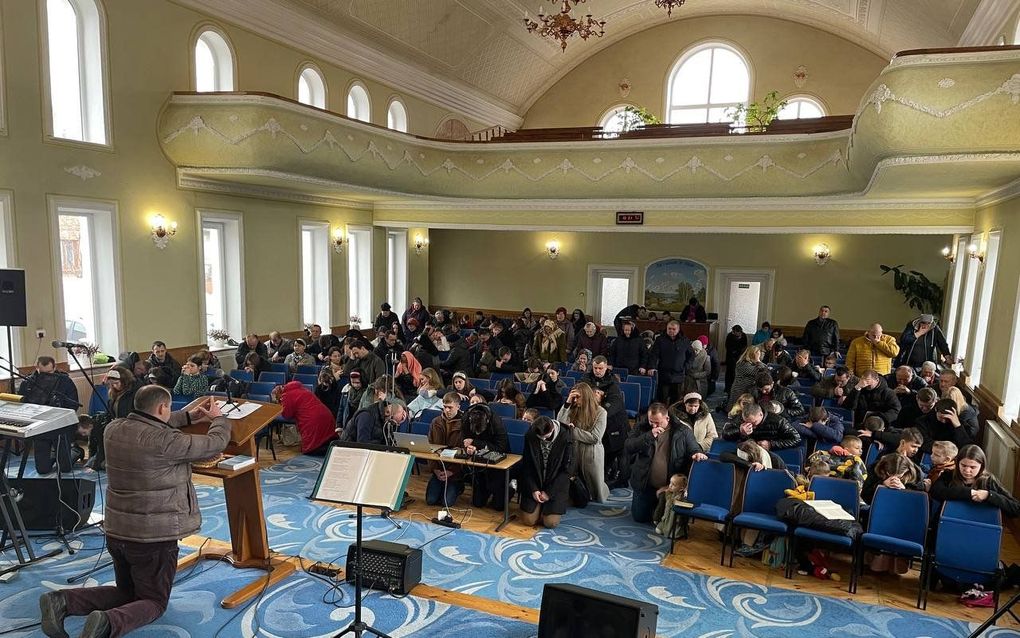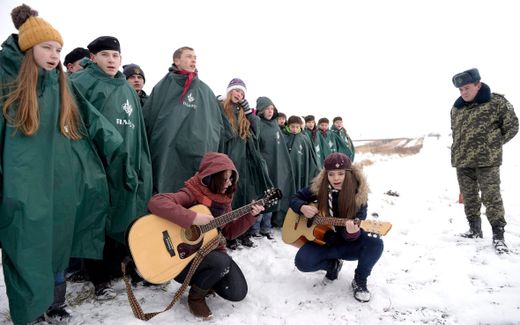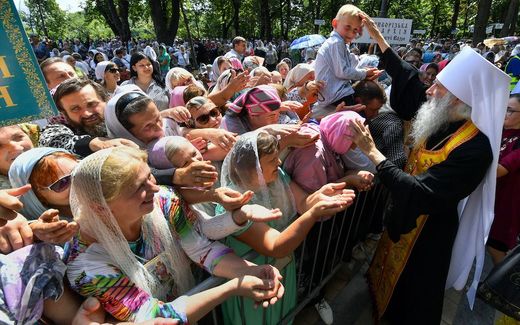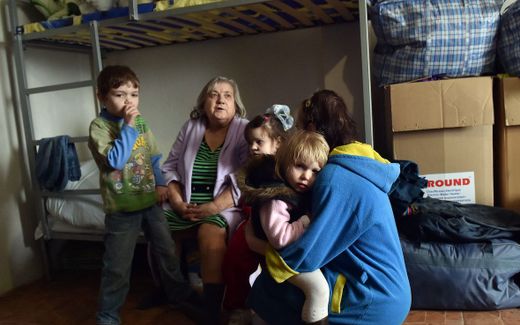What will happen with Ukraine as centre of Christian revival?
15-03-2022
Eastern Europe
Anssi Tiittanen, Seurakuntalainen

The war will have an effect on Evangelical and Pentecostal churches in Ukraine. Photo Facebook Baptists of Ukraine
Eastern Europe
The fear exists that the potential Russian occupation of Ukraine will stifle evangelical churches. Experiences in the separatist regions in the East are not promising.
Finnish experts emphasise the importance of Ukraine as a relevant spiritual centre in all of Eastern Europe. “In Finland. we are not aware how the evangelical movement in Ukraine is the strongest and also the fastest growing in Europe”, Rauli Lehtonen says. He is the chairman of the Swedish Pentecostal Eurasia Committee. Lehtonen regularly visits Ukraine. He is a teacher and board member of the Kyiv Bible Institute.
Arto Hämäläinen, former director of the European Pentecostal Movement, also describes the Pentecostal movement in Ukraine as successful. “Ukraine is one of the countries in Eastern Europe that currently has the largest Pentecostal movements on the continent.”

In total, there are about five traditional Pentecostal denominations in the country. The movement closest to the Finnish Pentecostals operates in connection with the Pentecostal European Fellowship and has about 150,000 members. There are about 1,800 Pentecostal churches in the country, with about 45 million inhabitants.
Rauli Lehtonen describes the revivalists in Ukraine as a Pentecostal-Charismatic-Baptist community with a solid commitment to their congregation. “If the congregation has 1,000 members, at best 1,500 people can attend meetings”, he says.
The Pentecostal enthusiasm to establish new churches in Ukraine is tinging. In 2016, the goal was to institute about 100 new congregations each year. “Despite the Covid pandemic, about 250 new congregations have been born in recent years”, Lehtonen says.
Influential in politics and economic affairs
Another notable feature of Ukraine is that revivalists extend their influence to key economic and political places in the country. Rauli Lehtonen: “It is illustrative that other people from the very top of politics also regularly meet Pentecostals and other revivalists. In Ukraine, the whole society is in contact with evangelical Christianity. The country lives an evangelical-Christian pulse.”

The vast majority of Ukrainians belongs to one of the country’s three Orthodox denominations. Their fundamental essence also includes confession and committed Christianity.
The Christian community has flourished in difficult times. That was already evident, for example, during the Orange Revolution in 2004.
According to Arto Hämäläinen, Christians “from all churches, including Catholics and Orthodox, rose to the barricades of prayer.”
Ukraine is the breeding ground for pastors
One of the hallmarks of the Pentecostal movement is also the growing missionary work. For decades, Ukraine has been a significant home and breeding ground for pastors. The parishes in Finland and Sweden have organised annual mission book training in Kyiv with the support of Avainmedia and others. The impact of the training is visible throughout the Russian-speaking world, including Siberia and Central Asia. Arto Hämäläinen estimates that as many as 80 per cent of Russia’s Pentecostal churches have a pastor with a Ukrainian background. Ukrainian congregations have sent about 500 missionaries out of the country.
“Believers suffer the same way as the entire nation”
After the Russian invasion of Ukraine, the connection between Ukrainian Christians was strengthened. “All Christians are united in the face of an external threat. In Ukraine, people pray and fast”, Rauli Lehtonen says. It is estimated that as many as 350,000 people took part in the latest prayer and fasting campaign.
There has been little information about the losses and deaths faced by Ukrainian congregations in the early stages of the war. “Believers suffer the same way as the entire nation”, Arto Hämäläinen thinks.
Before the war, Rauli Lehtonen got acquainted with the field of work of Pentecostal front priests in the eastern part of Ukraine. The men hugged them and saw everything they were waiting for. They take coffee and food to the stations and hold spiritual events in the wards.

Rauli Lehtonen and Arto Hämäläinen believe that the possible Russian occupation is not a good thing for Christians in Ukraine. “Experiences in the separatist regions of eastern Ukraine have already shown this. The nationalist orthodox of the Russians is a risk factor for the whole country”, says Hämäläinen.
According to Lehtonen, there are fears that Russia will implement a similar registration requirement and supervision in Ukraine. “In recent years, Russia has discriminated against revivalists. About 200 congregations have been sued. Evangelism is restricted, and missionary work is practically forbidden in many places.”
Large congregations have a contradictory position
In the 21st century, charismatic mega-churches of the Western-type have also emerged in Ukraine’s new spiritual field. The best known are probably the congregation of Sunday Adelaja, a Nigerian-Ukrainian pastor, and the congregation of the Hillsong movement in Kyiv.
“Many charismatic people have been strong political influencers and still are”, Rauli Lehtonen says. The popularity of large congregations has been weakened by Courts and lawsuits, including one against Adelaja. “There have been tensions between new and more traditional churches, although relations have recently improved”, Lehtonen states. New congregations have moved towards the more traditional churches, such as Pentecostals and Baptists.
This article was translated by CNE.news and published in Seurakuntalainen on March 9, 2022.
Related Articles





